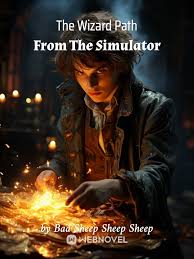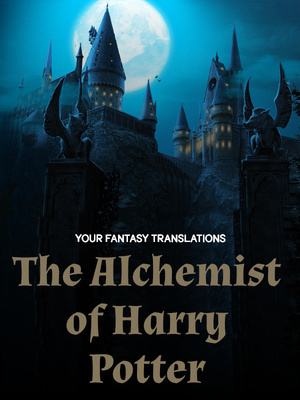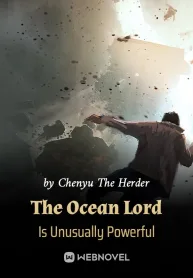Chapter 168: Naval Battle (Part 2)
Chapter 168 Naval Battle (Part 2)
Second update, please vote, please subscribe
After hearing the sound of Major James' flagship behind him, Major Charles' eyelids trembled, his heart sank, and he said loudly with all his strength: "Fire—"
Immediately, "A total of more than 20 artillery pieces on the deck and under the ship's side of the 'Henry VII' were fired together, and the nearby Scottish navy was only stunned for a moment, and then fired them all at once.
Immediately, more than 130 ships, large and small, ignited gunpowder and fired shells together.
At this moment, the sea surface on the side of the United Navy of England was covered by white smoke, just like the early morning fog, covering the United Navy. The air was full of sulfur smell, which made some sailors feel uncomfortable.
From the perspective of the French army, countless sparks suddenly burst out from the English ships at this time, and then the smoke spread, and the originally small shells continued to magnify in their eyes.
And this round of salvo, the recoil of the artillery moved the entire United Navy ship back by more than ten feet, and the distance between the ship and the ship was also out of thin air.
Even some merchant ships and ships of the Scottish Navy were in disrepair for a long time, and the whole ship almost split apart due to a salvo, so they could only slowly retreat and withdraw from the battle.
In the first round of salvo, hundreds of ships and cannons fired together. It can be said that this is a scene that has never been seen before in historical naval battles (this time and space).
In the same minute, thousands of shells flew into the French ships under the surprised eyes of the Venetians and the French with a force that is unmatched by human beings.
At this moment, more than a dozen ships of the French army sank directly, and more than 30 ships were injured and damaged.
And at this moment, the combatants who were densely packed on the deck and preparing for the boarding battle were killed by the shells falling on the deck, and more sailors jumped into the sea to avoid this deadly attack. one strike.
Of course, there are still a small number of people who were forced to jump into the sea. Most of them were shot down by the large splashes of the shells falling near the ship, or were shaken by the ship.
This round of salvo by the British army completely confuses the Venetians. Isn't it just boarding the ship to fight? When did naval battles change to artillery battles?
When they were surrounded, their companions in the sea kept calling them, asking for support.
Just as they were preparing to rescue, the United Navy of England started a second round of shooting.
At this time, the French army hadn't slowed down yet, perhaps because they were confused and forgot to slow down.
There was an interval of nearly three minutes between the first round of salvo and the second round of salvo.
Therefore, the "Hunter" at the forefront of the French army was only 2,500 yards away from the farthest "Sovereign of the Sea" of the British army at this time, and the closest distance was only 2,200 yards.
The last ship of the French army is only about 2,600 yards away from the nearest United Navy of England, which is completely within range.
This time also the "Sovereign of the Sea" started firing, and then the entire United Navy also started a second round of salvo.
Since there is no timer, and some artillery fuses have different lengths, the salvo here refers to shooting within one minute.
Due to the inexperience of the first salvo, some weakly reinforced light guns on the deck of some ships suddenly jumped up after firing shells, and rolled a few times, and some unlucky ones were even lightly thrown by such a jump. The cannon was crushed to death and wounded.
It is said that it is a light gun, but it is only relatively speaking. At least it weighs hundreds of pounds, and the danger is too great.
So, in the second round of salvo, many ships will directly press down with some stones or heavy cargo, and then let the sailors support them, so that they dare to continue firing.
French army, in the gap time after the first round of salvo, General Renardo hurriedly got up from the cabin and directly let the "Hunter" who ordered himself to sit down start firing shells.
The original shooting range was not reached, and the French army was not prepared for it for a while, so they had to hurry up and prepare.
After the second round of salvo by the coalition forces, due to the closer distance and the dense artillery, the French army hit more than 50 ships, 39 of which sank directly, and 16 were seriously damaged. , unable to participate in the battle, staying put.
Two rounds of salvos, the number of ships in the French army that were directly sunk reached 53, and the number of severely damaged ships reached 32.
That is to say, the original French expedition fleet of more than 150 ships, at this time, only half of the ships can participate in the battle, and the reduction in personnel exceeds 50%.
Of course, at this time, the English coalition forces have no way of knowing the loss of the French expeditionary fleet. The time is too short to count.
And General Renado on the flagship didn't know the loss on his side, so he chose to fire directly after the second round of salvo.
After the "Hunter" fired directly, the remaining 70-odd intact ships and more than 40 damaged ships that had not lost their artillery attack capabilities also chose to fire.
In this way, in the few minutes between the second and third rounds of the English coalition forces, the English coalition forces also tasted the salvo.
Thousands of shells with sparks rushed directly to the densely packed English coalition forces.
At this time, Major Charles, who was looking at the chaotic and in dire straits of the French expeditionary fleet with a binoculars, was happily beating his chest covered with chest hair and laughing.
"Mardy, I just said that these Venetians fought us to die, and it is true!"
"God bless—" Major Charles crossed his chest, soothing his irritated little heart.
The first officer on the side didn't tell that he had been cursing the street before, and ordered the sailors to steer the sailboat vigorously to escape from the battlefield when the battle was unfavorable.
At this time, there was a loud noise on the deck suddenly, and a shell directly penetrated into the cabin with an eruption force, and stopped almost eight feet (close to 2.4 meters) in front of Major Charles, directly interrupting the explosion. Prayer from Major Charles.
"Oh my God! God bless, God bless, it's too dangerous!" Major Charles was stunned for a moment when he saw the shells not far away, then wiped the cold sweat that was constantly coming out of his forehead, panting heavily.
"Your Excellency, Major, are you okay!" The adjutant at the side walked over timidly and said hello coquettishly.
"It's okay, Mardy, shoot those Venetian sons to death for me, artilleryman, shoot me!"
This fright directly annoyed Major Charles. He came near the artillery and shouted at the gunner cursing.
As soon as the boss urged, the gunner hastily accelerated the speed, cleaned the gun mouth, then put the shells into the gun, and ignited the gun.
So, almost at the same moment, the two English battleships "Sovereign of the Sea" and "Henry VII" launched together, and then England's third salvo came before the eyes of the Venetians.
(end of this chapter)
Second update, please vote, please subscribe
After hearing the sound of Major James' flagship behind him, Major Charles' eyelids trembled, his heart sank, and he said loudly with all his strength: "Fire—"
Immediately, "A total of more than 20 artillery pieces on the deck and under the ship's side of the 'Henry VII' were fired together, and the nearby Scottish navy was only stunned for a moment, and then fired them all at once.
Immediately, more than 130 ships, large and small, ignited gunpowder and fired shells together.
At this moment, the sea surface on the side of the United Navy of England was covered by white smoke, just like the early morning fog, covering the United Navy. The air was full of sulfur smell, which made some sailors feel uncomfortable.
From the perspective of the French army, countless sparks suddenly burst out from the English ships at this time, and then the smoke spread, and the originally small shells continued to magnify in their eyes.
And this round of salvo, the recoil of the artillery moved the entire United Navy ship back by more than ten feet, and the distance between the ship and the ship was also out of thin air.
Even some merchant ships and ships of the Scottish Navy were in disrepair for a long time, and the whole ship almost split apart due to a salvo, so they could only slowly retreat and withdraw from the battle.
In the first round of salvo, hundreds of ships and cannons fired together. It can be said that this is a scene that has never been seen before in historical naval battles (this time and space).
In the same minute, thousands of shells flew into the French ships under the surprised eyes of the Venetians and the French with a force that is unmatched by human beings.
At this moment, more than a dozen ships of the French army sank directly, and more than 30 ships were injured and damaged.
And at this moment, the combatants who were densely packed on the deck and preparing for the boarding battle were killed by the shells falling on the deck, and more sailors jumped into the sea to avoid this deadly attack. one strike.
Of course, there are still a small number of people who were forced to jump into the sea. Most of them were shot down by the large splashes of the shells falling near the ship, or were shaken by the ship.
This round of salvo by the British army completely confuses the Venetians. Isn't it just boarding the ship to fight? When did naval battles change to artillery battles?
When they were surrounded, their companions in the sea kept calling them, asking for support.
Just as they were preparing to rescue, the United Navy of England started a second round of shooting.
At this time, the French army hadn't slowed down yet, perhaps because they were confused and forgot to slow down.
There was an interval of nearly three minutes between the first round of salvo and the second round of salvo.
Therefore, the "Hunter" at the forefront of the French army was only 2,500 yards away from the farthest "Sovereign of the Sea" of the British army at this time, and the closest distance was only 2,200 yards.
The last ship of the French army is only about 2,600 yards away from the nearest United Navy of England, which is completely within range.
This time also the "Sovereign of the Sea" started firing, and then the entire United Navy also started a second round of salvo.
Since there is no timer, and some artillery fuses have different lengths, the salvo here refers to shooting within one minute.
Due to the inexperience of the first salvo, some weakly reinforced light guns on the deck of some ships suddenly jumped up after firing shells, and rolled a few times, and some unlucky ones were even lightly thrown by such a jump. The cannon was crushed to death and wounded.
It is said that it is a light gun, but it is only relatively speaking. At least it weighs hundreds of pounds, and the danger is too great.
So, in the second round of salvo, many ships will directly press down with some stones or heavy cargo, and then let the sailors support them, so that they dare to continue firing.
French army, in the gap time after the first round of salvo, General Renardo hurriedly got up from the cabin and directly let the "Hunter" who ordered himself to sit down start firing shells.
The original shooting range was not reached, and the French army was not prepared for it for a while, so they had to hurry up and prepare.
After the second round of salvo by the coalition forces, due to the closer distance and the dense artillery, the French army hit more than 50 ships, 39 of which sank directly, and 16 were seriously damaged. , unable to participate in the battle, staying put.
Two rounds of salvos, the number of ships in the French army that were directly sunk reached 53, and the number of severely damaged ships reached 32.
That is to say, the original French expedition fleet of more than 150 ships, at this time, only half of the ships can participate in the battle, and the reduction in personnel exceeds 50%.
Of course, at this time, the English coalition forces have no way of knowing the loss of the French expeditionary fleet. The time is too short to count.
And General Renado on the flagship didn't know the loss on his side, so he chose to fire directly after the second round of salvo.
After the "Hunter" fired directly, the remaining 70-odd intact ships and more than 40 damaged ships that had not lost their artillery attack capabilities also chose to fire.
In this way, in the few minutes between the second and third rounds of the English coalition forces, the English coalition forces also tasted the salvo.
Thousands of shells with sparks rushed directly to the densely packed English coalition forces.
At this time, Major Charles, who was looking at the chaotic and in dire straits of the French expeditionary fleet with a binoculars, was happily beating his chest covered with chest hair and laughing.
"Mardy, I just said that these Venetians fought us to die, and it is true!"
"God bless—" Major Charles crossed his chest, soothing his irritated little heart.
The first officer on the side didn't tell that he had been cursing the street before, and ordered the sailors to steer the sailboat vigorously to escape from the battlefield when the battle was unfavorable.
At this time, there was a loud noise on the deck suddenly, and a shell directly penetrated into the cabin with an eruption force, and stopped almost eight feet (close to 2.4 meters) in front of Major Charles, directly interrupting the explosion. Prayer from Major Charles.
"Oh my God! God bless, God bless, it's too dangerous!" Major Charles was stunned for a moment when he saw the shells not far away, then wiped the cold sweat that was constantly coming out of his forehead, panting heavily.
"Your Excellency, Major, are you okay!" The adjutant at the side walked over timidly and said hello coquettishly.
"It's okay, Mardy, shoot those Venetian sons to death for me, artilleryman, shoot me!"
This fright directly annoyed Major Charles. He came near the artillery and shouted at the gunner cursing.
As soon as the boss urged, the gunner hastily accelerated the speed, cleaned the gun mouth, then put the shells into the gun, and ignited the gun.
So, almost at the same moment, the two English battleships "Sovereign of the Sea" and "Henry VII" launched together, and then England's third salvo came before the eyes of the Venetians.
(end of this chapter)







